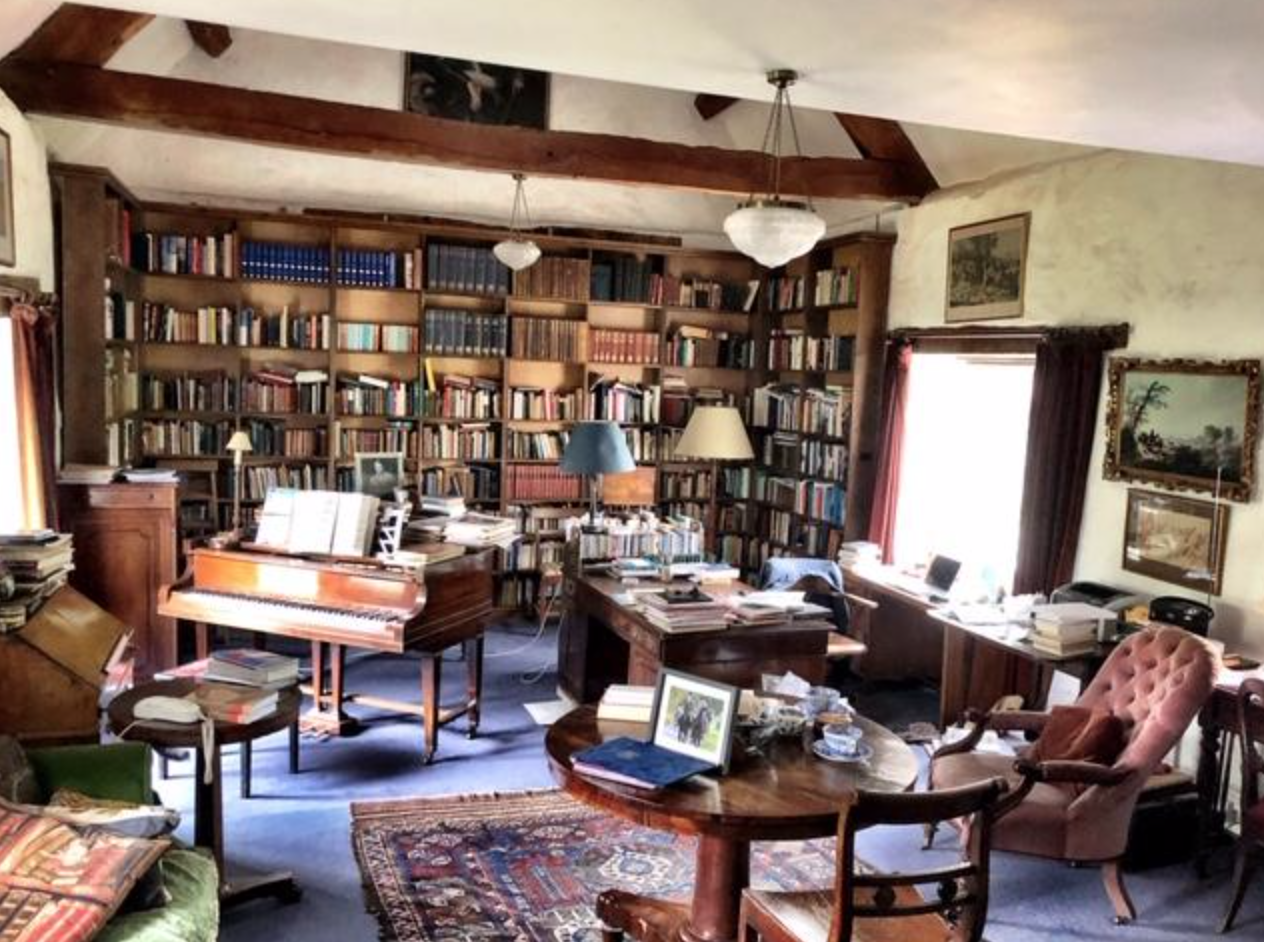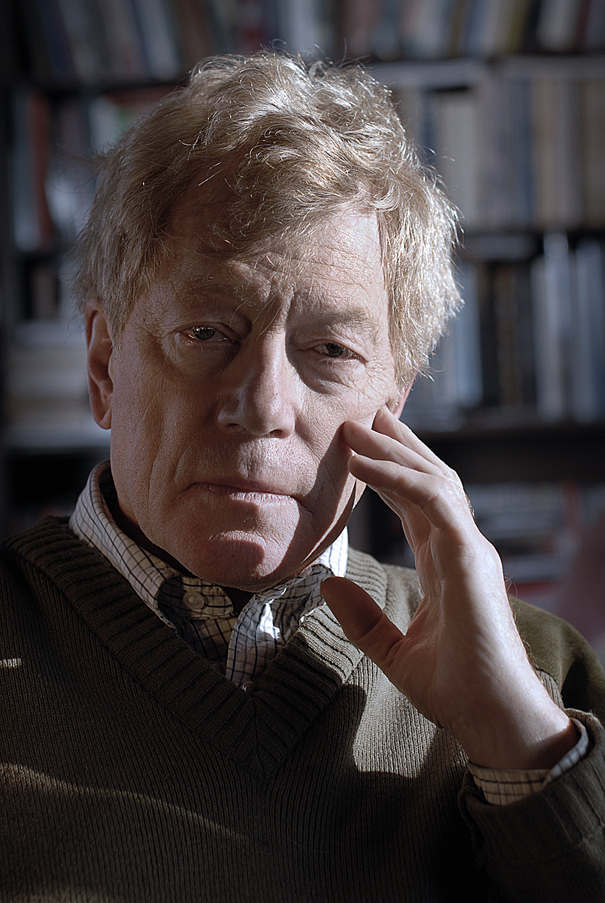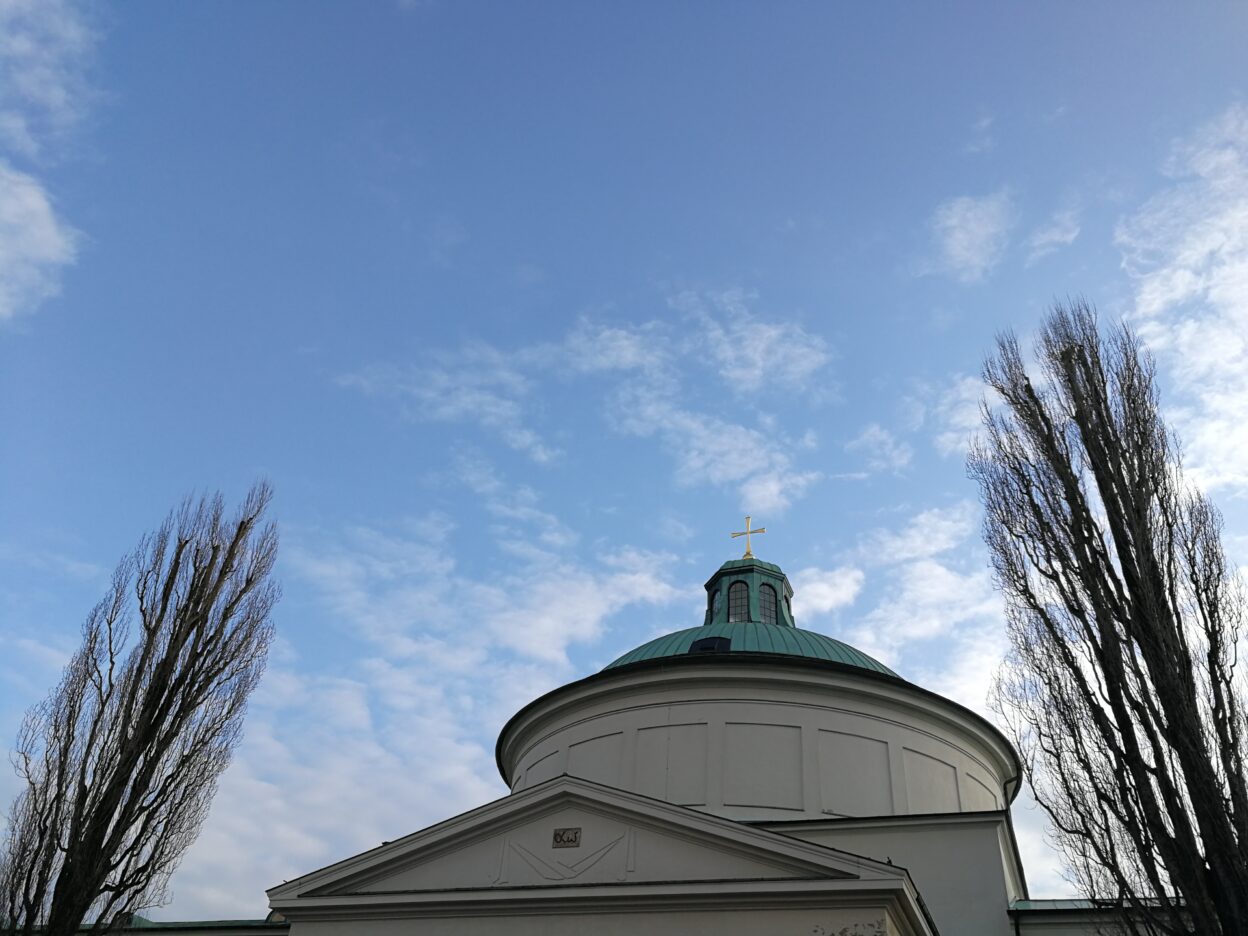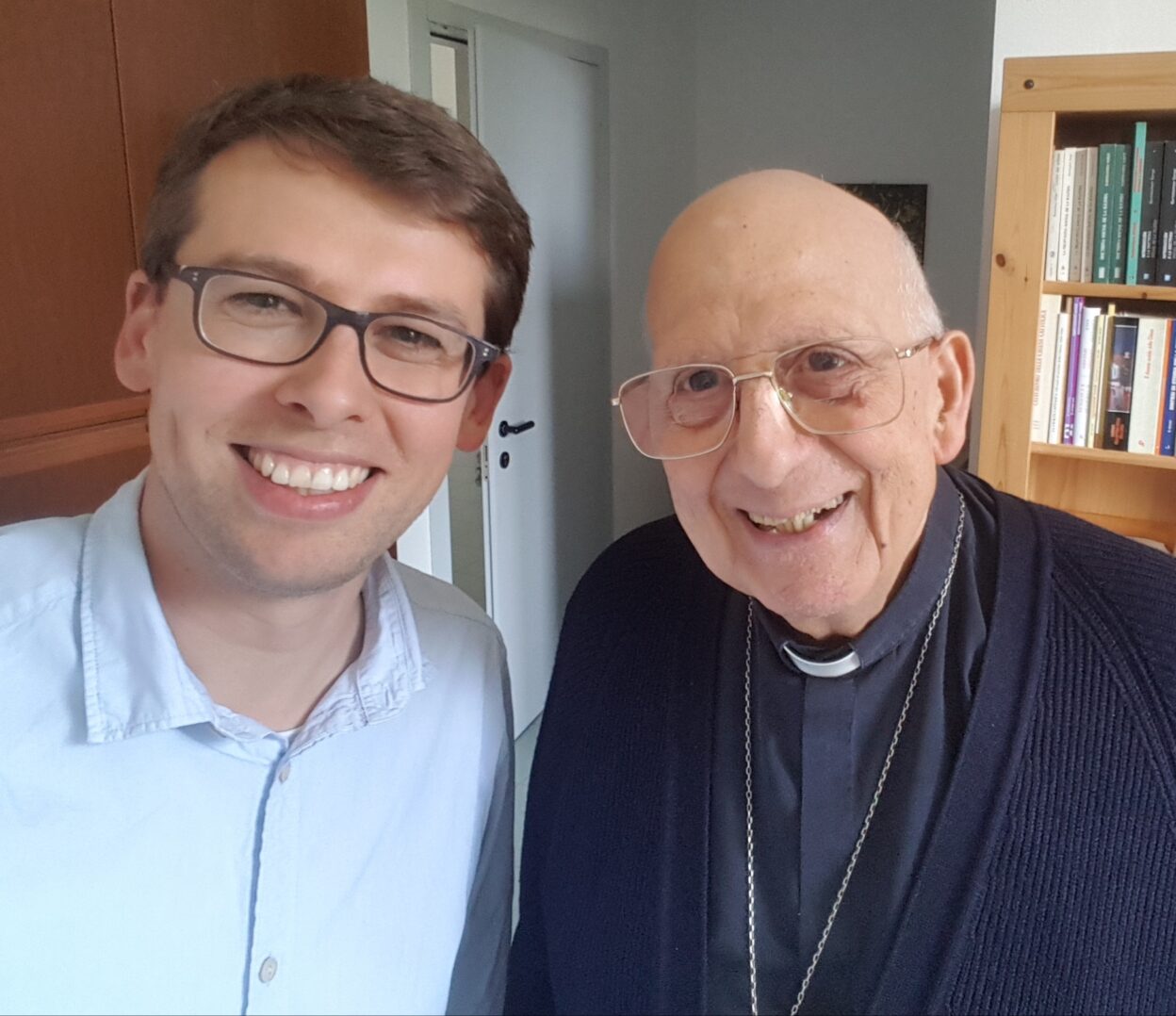Sir Roger Scruton (1944-2020), who died last week, was an English philosopher and writer. To the wider public he is best known as a conservative thinker, but his work was much wider than this. In addition to seven or eight works of political philosophy, he wrote on music, architecture, philosophical anthropology, Kant, Spinoza, Wagner, the environment, sexual desire, God, hunting, wine, the countryside, Lebanese politics and the Church of England; he also wrote six novels, two collections of short stories, two operas, poetry, innumerable articles and a number of songs. Almost uniquely for an English philosopher, Scruton became well-known beyond academia – better-known, I suspect, than any English philosopher since Bertrand Russell. Although he was often a controversial figure, the last week has seen an outpouring of warm and grateful testimonials, many by writers from liberal and left-wing backgrounds who disagreed deeply with Scruton’s politics.
A profoundly serious vision of human life
My own experience of Scruton’s work began early, while I was still at school. I came from just such a left-liberal background, and when I first read Scruton, it was in the same spirit that one might study a medieval justification for witch-burning, roughly ‘So what could these monsters possibly have to say for themselves?’ And yet, in spite of myself, I was intrigued. I was struck by the sense of a profoundly serious vision of human life, one in which words like redemption, beauty, sacrifice, the sacred, and homecoming took central place. I was not sure I understood this vision, and I am not sure I understand it wholly today. But I was immediately drawn to it, and filled by the sense that here, perhaps for the first time, someone was speaking of the things that I knew intuitively to matter.
I met Scruton in person a few years later, when he supervised my undergraduate research on Schiller’s aesthetics. Scruton was a profoundly generous and inspiring teacher, though a highly unusual one. He did not give much guidance on the technical aspects of writing: a typical response to a submitted draft would be ‘Good – maybe question-begging on p. 4 – but the important thing is to get the idea of sacrifice back in here. See Saint Paul, René Girard, Bernard Williams’. He was remarkable for his faith in his students: he believed they could achieve far more than they believed themselves, and he strove to persuade them of his generous view of their abilities. His other striking gift was for communicating the big picture, for showing how philosophy can be ‘a meditation on the human condition’. Scruton’s philosophical work was continuous with his interest in art, history and culture, and indeed with the whole way in which he lived, and he showed his students how they could make their own philosophical work matter in this way. Many of them, myself included, believed their relationship with him to be among the most formative of their adult lives.

Scruton’s scholarly work was largely in philosophical aesthetics. His contribution to this field is found principally in three books, Art and Imagination, The Aesthetics of Architecture and The Aesthetics of Music, in which he defended an account of aesthetic experience drawn from nineteenth-century German philosophy, especially Kant, Schiller and Hegel. From this he derived his well-known defences of tonal music and traditional architecture. He wrote introductions to Kant, Spinoza and the history of modern Western philosophy, all of which remain standard texts today, decades after publication. His other pedagogical contribution was unique book called Modern Philosophy: An Introduction and Survey, which consisted in brief, pithy introductions to every major debate in philosophy as it was in the 1990s. This was widely used as a textbook, especially in the United States, and I am told it was by far the most profitable book Scruton ever wrote. There was also Sexual Desire: A Philosophical Investigation, a defence of a broadly Kantian account of personhood and what he took to be its conservative implications in the domain of human sexuality. Martha Nussbaum, a frequent critic of Scruton’s whom he nonetheless deeply respected, described it as ‘the most interesting philosophical attempt as yet to work through the moral issues involved in our treatment of persons as sex partners’.
Pictures vs. arguments
These books have had a major impact, and Scruton gradually received many of the highest laurels in British academia, including Fellowship of the British Academy, Fellowship of the Royal Society of Letters, and a knighthood. But there was much that was unusual about Scruton as an analytical philosopher, quite aside from his politics. Analytical philosophy is, fundamentally, about arguments: a good paper is normally one that shows that some relatively controversial conclusions follow from some relatively uncontroversial premisses. And the fact was that Scruton just wasn’t that interested in arguments: he always cared more about what he called pictures. His way of writing a book was always to work out his picture of the matter at hand, and then to express it as persuasively as possible. Arguments would feature as a way of highlighting the picture’s advantages or distinguishing it from its rivals, but they would not form the work’s core. He often chose topics on which relatively few analytical philosophers had written, and even when there were substantial existing academic literatures, he did not usually spend much time rebutting them. He wrote beautifully, especially later in his career, and his writing often seemed to teem with meaning beyond what was explicitly stated. The following is very typical:
Through aesthetic reflection we endeavour to create a world in which we are at home with others and with ourselves: and home is not a home without the implication of community. Home is not occupied only by us: it is inhabited by the ghosts of our ancestors, and by the premonition of children who are yet to be. Its essence is continuity, and it provides the archetype of every experience of peace.
Analytical philosophers will read this with mixed respect and exasperation, at least if they look at it in isolation. What is it to be ‘at home with others’? In what sense is home’s essence ‘continuity’? Is it strictly true that it is ‘the archetype of every experience of peace’? There are answers to these questions implicit in Scruton’s work, but he required his readers to reconstruct them. His books are not insubstantial: they were written with immense care, and the scholarly ones are, in their own way, extremely intricate and systematic. But their logical structures are like the skeletons of living beings, present beneath the surface but always unseen. Scruton did write some music and literature, and I think he half-wished he had been an artist rather than a philosopher. But the truth, perhaps, is that he was an artist all along: in his hands, philosophy became a literary form, a way of expressing a vision of human life.
A Europe loving Eurosceptic?
Readers of this blog have a special interest in the idea of Europe, and might want to know more about Scruton’s views on it. Scruton was, as is well-known, a Eurosceptic. But his Euroscepticism stood against an unusual backdrop. He had lived in France and Italy and spoke fluent French and Italian, as well as reading German, Latin and Greek. Unusually for a Western European, he also read Czech and Polish, which he learnt in the course of his immensely distinguished involvement in the ‘underground universities’ of communist Europe. His philosophical influences were mostly German, and in many ways his personal model as a philosopher was Sartre. The art he loved most was the Austro-German symphonic tradition, and the artworks about which he wrote most deeply were Wagner’s operas. He once described himself as ‘a French intellectual, a born Englishman, a German romantic, a loyal Virginian and a Czech patriot’.
To some, this might make Scruton’s Euroscepticism surprising. Scruton was well aware of the interdependence of the European cultures, and of the multilayered nature of European identity. He knew that England without Europe is unthinkable – that there could be no Georgian architecture without Palladio, no landscape gardens without Claude Lorrain, no Church of England without Luther, and so on. So he could not believe that national cultures are or should be sealed from one another, or that England is not really a European country.
Scruton’s picture of Europe, rather, that although there is such a thing as European culture, that thing is made up of the European national cultures, in something like the way an organism is made up of its organs. He saw the European Union as a homogenising force, a risk to the diversity of the national cultures and the historically rooted identities that accompany them. He was deeply influenced here by TS Eliot, especially his well-known comment:
I have already affirmed that there can be no ‘European culture’ if the several countries are isolated from each other: I add now that there can be no European culture if these countries are reduced to identity.
Was Scruton right that the European Union risks ‘reducing the European countries to identity’, and that such risks outweigh the benefits it brings? I am not sure; personally, I was not altogether persuaded. But maybe the Union has not been very good at allaying such concerns. Scruton liked to compare the seats of our national institutions to those of the EU. On the one hand we have the Palace of Westminster, 10 Downing Street, the Palace de l’Élysée, the Bundestag, the Palazzo Montecitorio, the Quirinal, and so on – buildings drenched in the architectural, cultural and historical legacies of the European peoples. On the other we have the modernist towers and slab blocks of the European institutions in Brussels, Strasbourg and Frankfurt – buildings devoid of historical resonance, recalling slightly faded corporate headquarters. Here, he would remark, we see the absent heart of the EU: national cultures are not synthesised or reconciled, but effaced: Europeans are ‘reduced to identity’.
Many supporters of the Union would treat this observation with scorn – what relevance does the architectural style of government buildings have for the assessment of a gigantic legal, economic and political undertaking? One can understand this sort of response. But Scruton would say that this is precisely where the EU has gone wrong, focussing on considerations that appeal to economists and technocrats, and disregarding the concern that most people have for communities rooted in a place and its history, celebrated in myths, arts and traditions. As they formulate a response to Brexit and the rise of Continental Eurosceptic parties, perhaps this is a thought that friends of the European Union should take seriously.
Precisely because of this kind of thinking, Scruton was intrigued by the „Europäisches Archiv der Stimmen“-project. He thought it revealed an understanding of what Europe really means, and why it matters, and glimpsed in it of the kind of project by which the European Union might have legitimated itself in his eyes. He would have enjoyed contributing to it, and no doubt he would have had many interesting and provocative thoughts to contribute. It is my regret that this will not come to pass.
January 2020.
Samuel Hughes is a philosopher working primarily in aesthetics. He is about to begin a Research Fellowship at the University of Oxford. He was educated at the Universities of Oxford and Cambridge, and has spent time as a visiting researcher at the University of Tokyo, the Humboldt University of Berlin, and the University of Notre Dame. During the last year, he was Roger Scruton’s Research Assistant on the British Government’s Building Better, Building Beautiful Commission, which investigated how we can raise standards of architecture and urban form in new housing.



